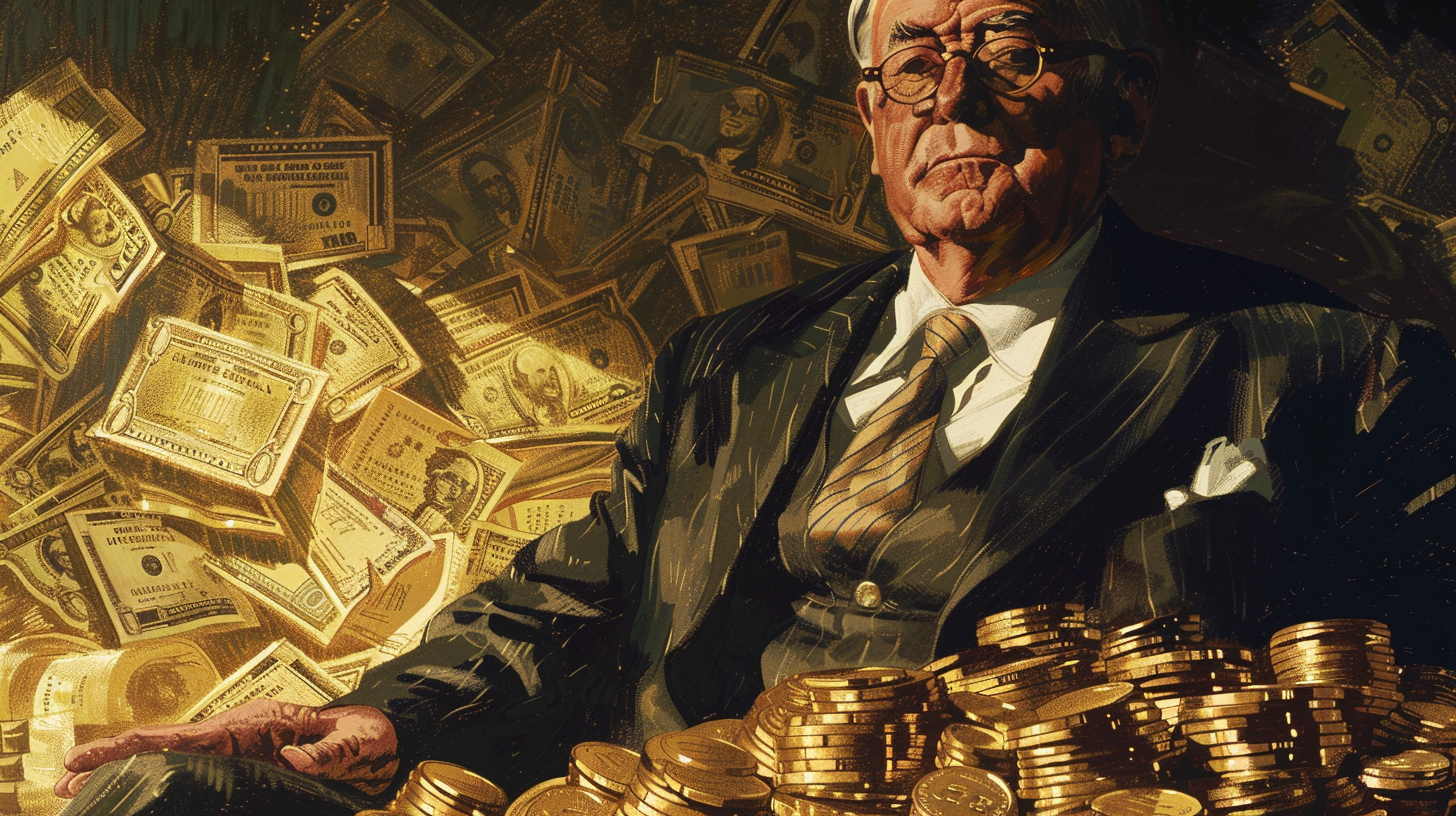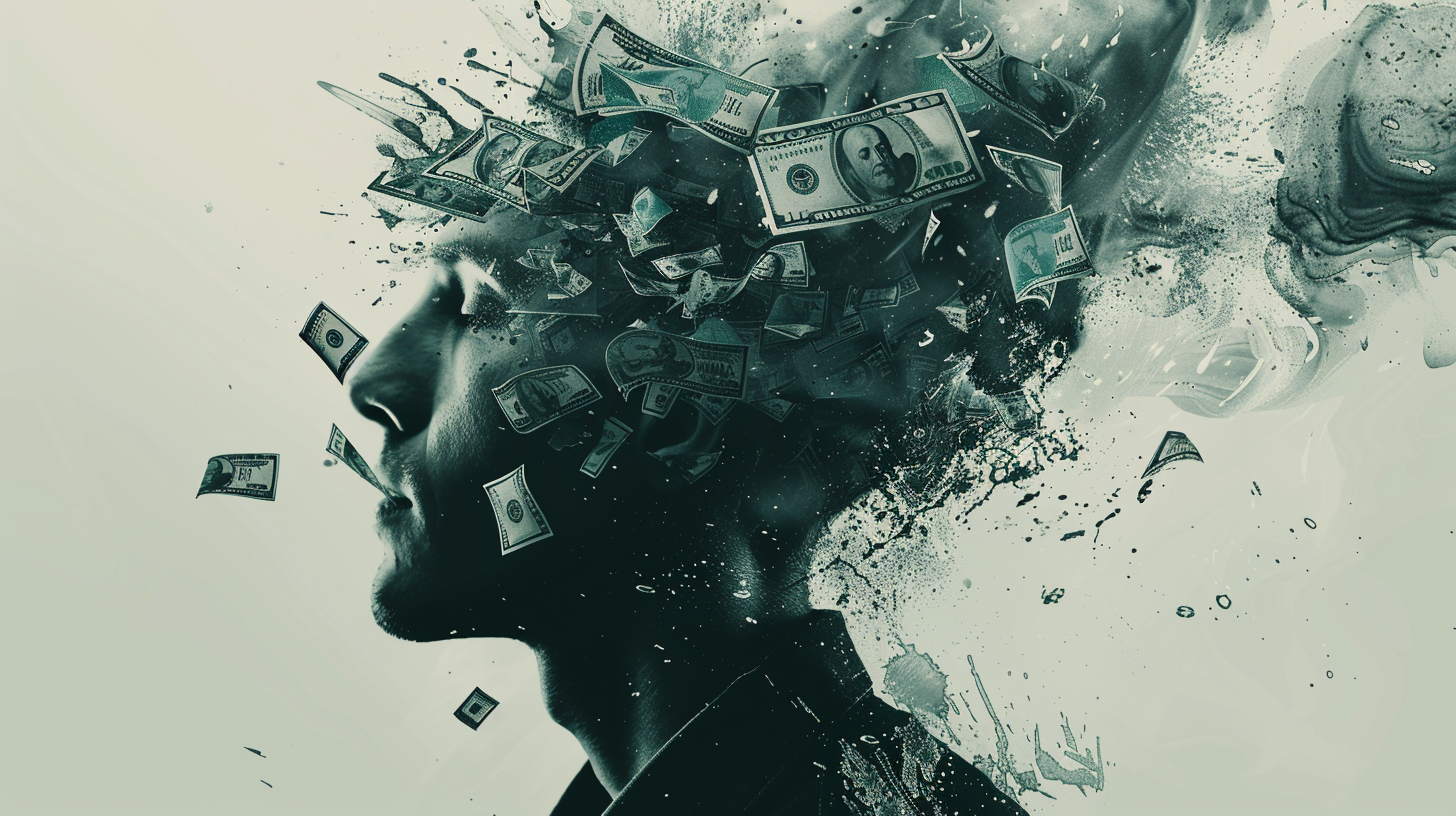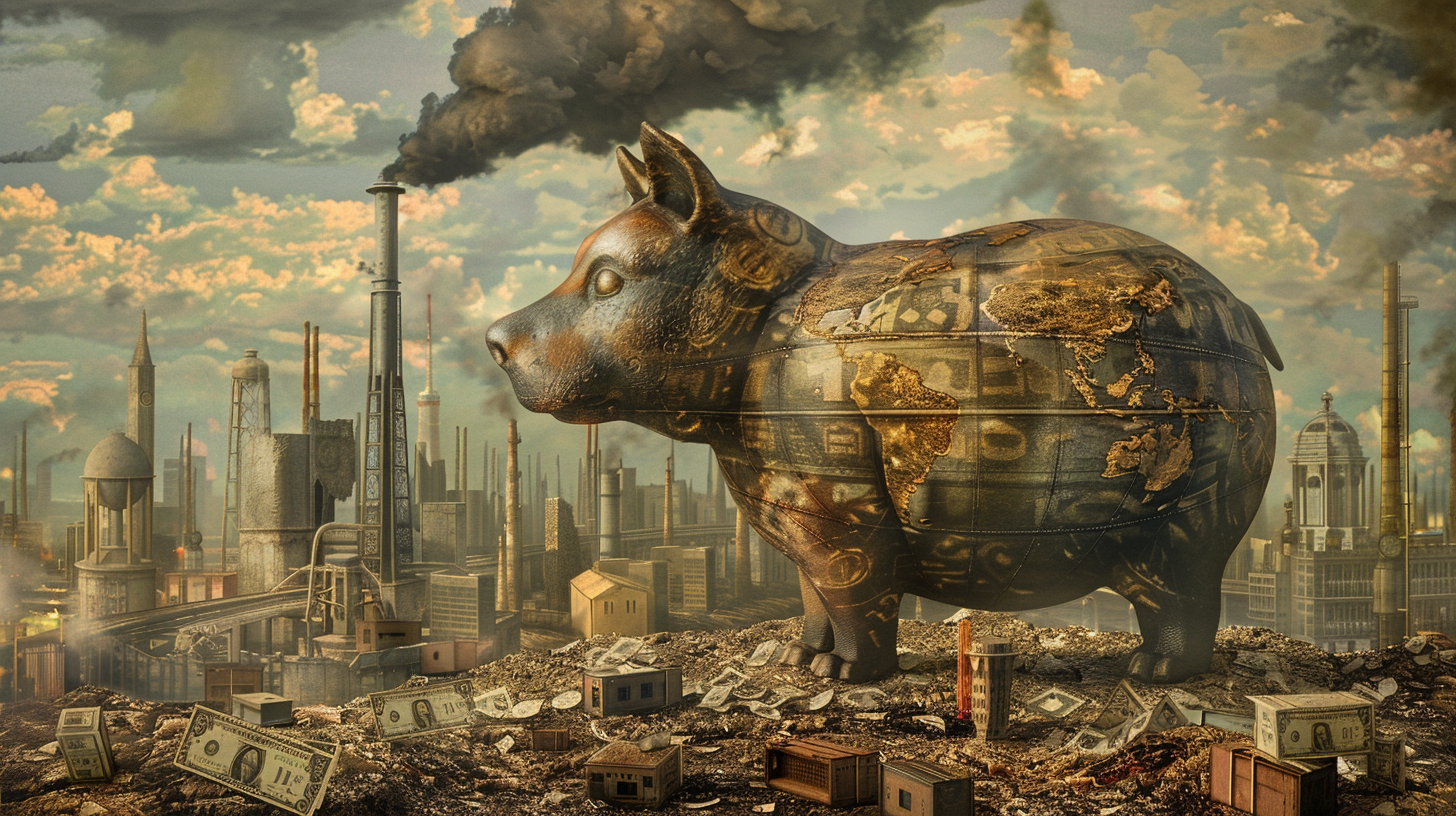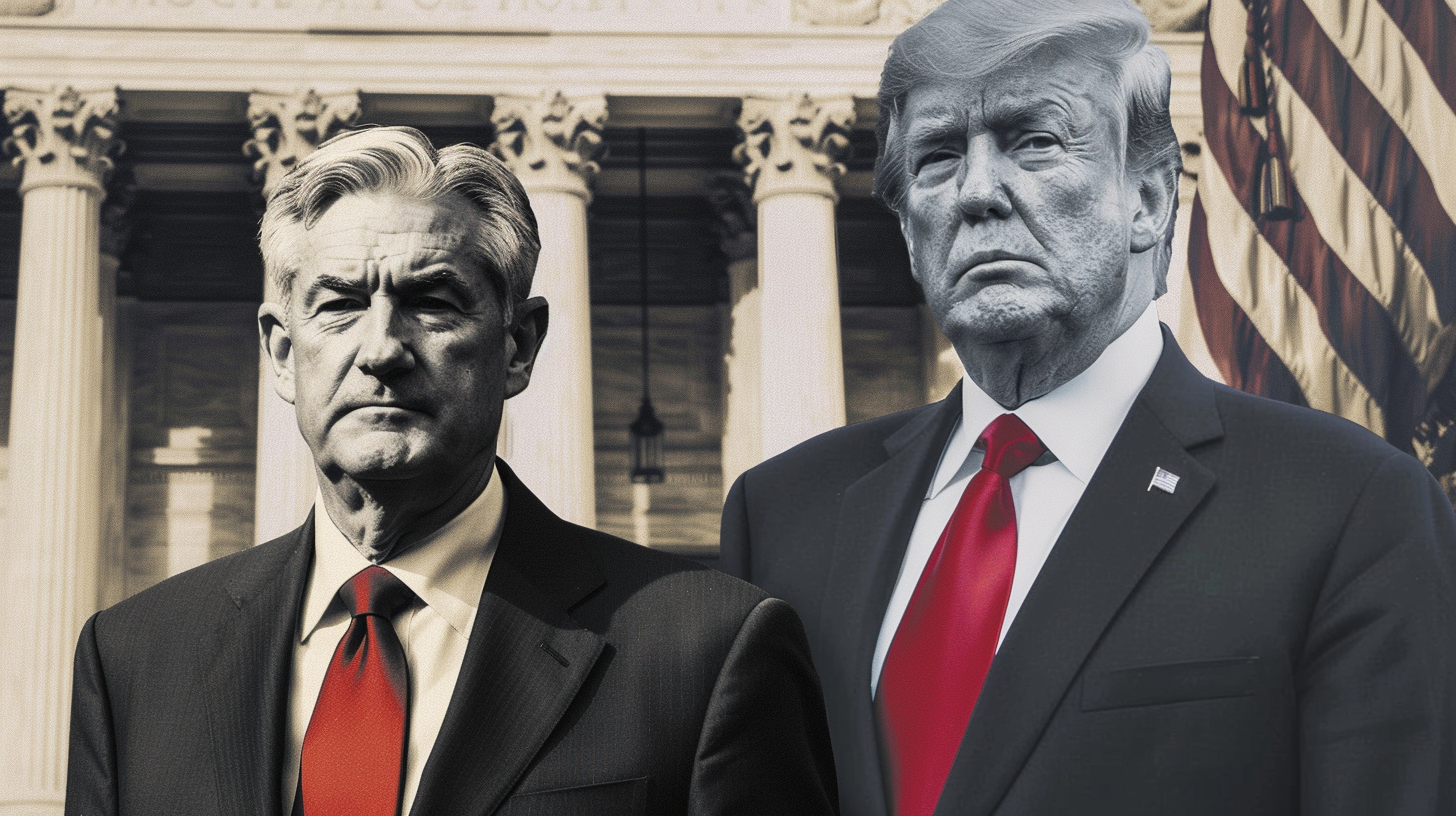US Monetary Imperialism: The Emperor Has No Clothes (Audio)
Jeff Deist, President of the Mises Institute, interviewed Patrick Barron, a private consultant to the banking industry. In this not-to-be-missed conversation, Barron explains exactly how the United States dollar became the world’s “reserve currency,” allowing America to become a “monetary imperialist.” According to Austrian economist Hans Hoppe, a monetary imperialist is a dominant country that uses its power to enforce a policy of internationally coordinated inflation. However, the countries and corporations of the world are getting sick of US imperialism, and Barron is certain that the wheels are already in motion to abandon the US dollar.
This is part one of a two-part interview that covers the following topics:
- How does the world use the dollar as a weapon of economic and cultural power?
- How did the Bretton Woods agreement set the stage for the US dollar to dominate the world economy, and how long can it all last?
- What might the unprecedented collapse of the worldwide reserve currency look like?
- How do the BRIC nations and Asian central banks fight back?
Enjoy a partial transcript of the interview’s highlights below the video.
Follow Along with this Partial Transcript:
“Henry Hazlitt, who is a well known American Austrian economist, who at the time attended the Bretton Woods Conference in New Hampshire as a reporter for the New York Times, was very critical of the agreement. Because he said it conferred upon one nation too much power, and it was too great a responsibility. And what I think he meant by that was that it conferred to great a chance, an opportunity, to cheat. And that’s exactly what America did…
[After World War II, America] had a huge balance of payments – credit – that was being paid in gold. Over the course of the war, the United States accumulated a huge reserve of gold. So we had… the lion’s share of the world’s reserve of gold in all the central banks. So at the Bretton Woods conference there was a desire to return to a sound money of some kind. So what they came up with was there would be inter-bank settlement among central banks and the settlement mechanism would be in gold or dollars. And that the dollar would be pegged at thirty-five dollars an ounce…
This is called the Gold Exchange Standard… A private individual couldn’t present the dollars to the Fed that other central banks could. It conferred upon the US the ability to, if the dollars weren’t presented for payment, to cheat and to actually start printing money. Which we did…
The years went by… [The French President Charles de Gaulle] realized what the US was doing and they said, “There’s some cheating going on here. The US is printing dollars and buying foreign goods. So in effect, we’re getting pieces of paper that are not really worth one-thirty-fifth an ounce of gold. And yet we’re giving the Americans good French goods for that.” So he told the Bank of France to redeem eighty percent of their dollar holdings, which they had counted as the same as gold at thirty-five dollars an ounce. Well this, over time, started what in effect became a run on the Fed. That is what drove us off the gold standard in 1971…
What would we have had to devalue the dollar to gold, what would have been the rate if Nixon, instead of just taking us off the gold standard, had just said, “You’re going to have to present more dollars to get your ounce of gold so that we don’t run out of gold.” I calculated that at that time it would have been over four hundred dollars an ounce. Which shows how much money the US actually printed since World War II. Of course, what really caused the big explosion in dollar printing was Lyndon Johnson’s Guns and Butter Policy of the 1960s, when he simultaneously fought the Vietnam War and introduced all his welfare programs that he called The Great Society.
This technical term of “the reserve currency” meant that a central bank would hold dollars as reserve of gold at a certain exchange ratio. So it was a technical term. Now when the US went off the gold standard, it didn’t mean central banks would no longer hold dollars… Calling it a reserve currency is sort of an anachronistic name. Now central banks hold dollars just for the convenience of it. Sometimes they hold dollars for the wrong reasons, because they have bad monetary policy themselves…
[Economist Hans Hoppe] uses the term “monetary imperialism” to describe US monetary policy. What he means by that, paraphrasing, is that the dominating state uses its position to enforce a policy of internationally coordinated inflation, in effect…
All the central banks of the world are following the wrong monetary policy, which allows the United States to become a monetary imperialist. Which means that we are papering the world with our dollars… We’re giving people paper dollars that are worth less and less all the time… This is an imperialism that only takes place because the other countries have bad monetary policies themselves…
What happens with an imperialism of any kind, whether its monetary or military imperialism, it tends to expand and expand until it actually collapses. And at some point, the rest of the world will realize that, in effect, the emperor has no clothes. Maybe it will be Japan, or maybe it will be China and Russia and India… maybe Brazil… [They’re going to say], “We’re not going to do this anymore. We’re not going to use dollars to settle our foreign accounts. We’re going to use some other currency.”
I think it’s already beginning… I don’t believe that we’re going to see that there is going to be some sort of Bretton Woods-type conference among the Russians and the Chinese and the Indians and the Arabs. It’s more likely that international corporations will start wanting to trade in something other than the dollar. And this is already happening. I have it on good authority from some friends who work for a major, major American export company on the East Coast, that their goods are being settled in the yuan in Asia. And that’s because their partners want yuan, and they don’t want dollars. I think this has already begun…
[Countries] are becoming increasingly nervous that their holdings of American financial instruments in dollar terms are depreciating as they sit there. So they don’t like this. They don’t really quite know what to do about it yet… They know that ridding themselves of the dollar will not be pain free, and they’re just at this point not willing to accept the consequences of it. But it will be done. [Stein’s Law] – If something cannot continue, it will not continue… American financial imperialism cannot continue and will not continue. When will it happen?”
Follow us on Twitter to stay up-to-date on Peter Schiff’s latest thoughts: @SchiffGold
Interested in learning about the best ways to buy gold and silver?
Call 1-888-GOLD-160 and speak with a Precious Metals Specialist today!



 Beneath the veneer of headline job gains, the American economy teeters on the brink: native employment dwindles as part-time and immigrant jobs surge. Government hiring camouflages looming recession warnings. Inflation and political blunders worsen the crisis, fueling public outrage at the establishment’s mishandling of the economy.
Beneath the veneer of headline job gains, the American economy teeters on the brink: native employment dwindles as part-time and immigrant jobs surge. Government hiring camouflages looming recession warnings. Inflation and political blunders worsen the crisis, fueling public outrage at the establishment’s mishandling of the economy. On April 5 1933, Franklin D. Roosevelt abandoned the gold standard, wielding questionable legal power amidst America’s dire economic depression. His whimsical approach to monetary policy, including coin flips and lucky numbers, unleashed unprecedented inflation and price increases that have since amounted to nearly 2500%. Our guest commentator explores this tragic history and the legacy […]
On April 5 1933, Franklin D. Roosevelt abandoned the gold standard, wielding questionable legal power amidst America’s dire economic depression. His whimsical approach to monetary policy, including coin flips and lucky numbers, unleashed unprecedented inflation and price increases that have since amounted to nearly 2500%. Our guest commentator explores this tragic history and the legacy […] Welcome to the world of modern economics where the term “inflation” no longer signifies the increase in the quantity of money, but has evolved into a plethora of buzzwords. From “shrinkflation” to “greedflation,” these new terms and semantic shifts are by no means harmless but a manipulation of popular sentiment. Von Mises said they play […]
Welcome to the world of modern economics where the term “inflation” no longer signifies the increase in the quantity of money, but has evolved into a plethora of buzzwords. From “shrinkflation” to “greedflation,” these new terms and semantic shifts are by no means harmless but a manipulation of popular sentiment. Von Mises said they play […] Assuming CPI measurements are not understatements, the dollar’s value has plummeted by a staggering one-fifth since 2020, yet, rather than acknowledging its role in fueling this economic turmoil, the Biden administration deflects, casting capitalism and corporate greed as the villains. The latest February CPI data show more signs of the upcoming inflation bloodbath.
Assuming CPI measurements are not understatements, the dollar’s value has plummeted by a staggering one-fifth since 2020, yet, rather than acknowledging its role in fueling this economic turmoil, the Biden administration deflects, casting capitalism and corporate greed as the villains. The latest February CPI data show more signs of the upcoming inflation bloodbath. The Federal Reserve is often viewed as a neutral guardian of the economy, tasked with safeguarding employment and ensuring stable prices. However, the Fed is run by individuals who, like anyone else, are swayed by certain motivations. Do the people behind the Fed truly have the incentive to remain impartial? Our guest commentator demystifies the […]
The Federal Reserve is often viewed as a neutral guardian of the economy, tasked with safeguarding employment and ensuring stable prices. However, the Fed is run by individuals who, like anyone else, are swayed by certain motivations. Do the people behind the Fed truly have the incentive to remain impartial? Our guest commentator demystifies the […]
Leave a Reply